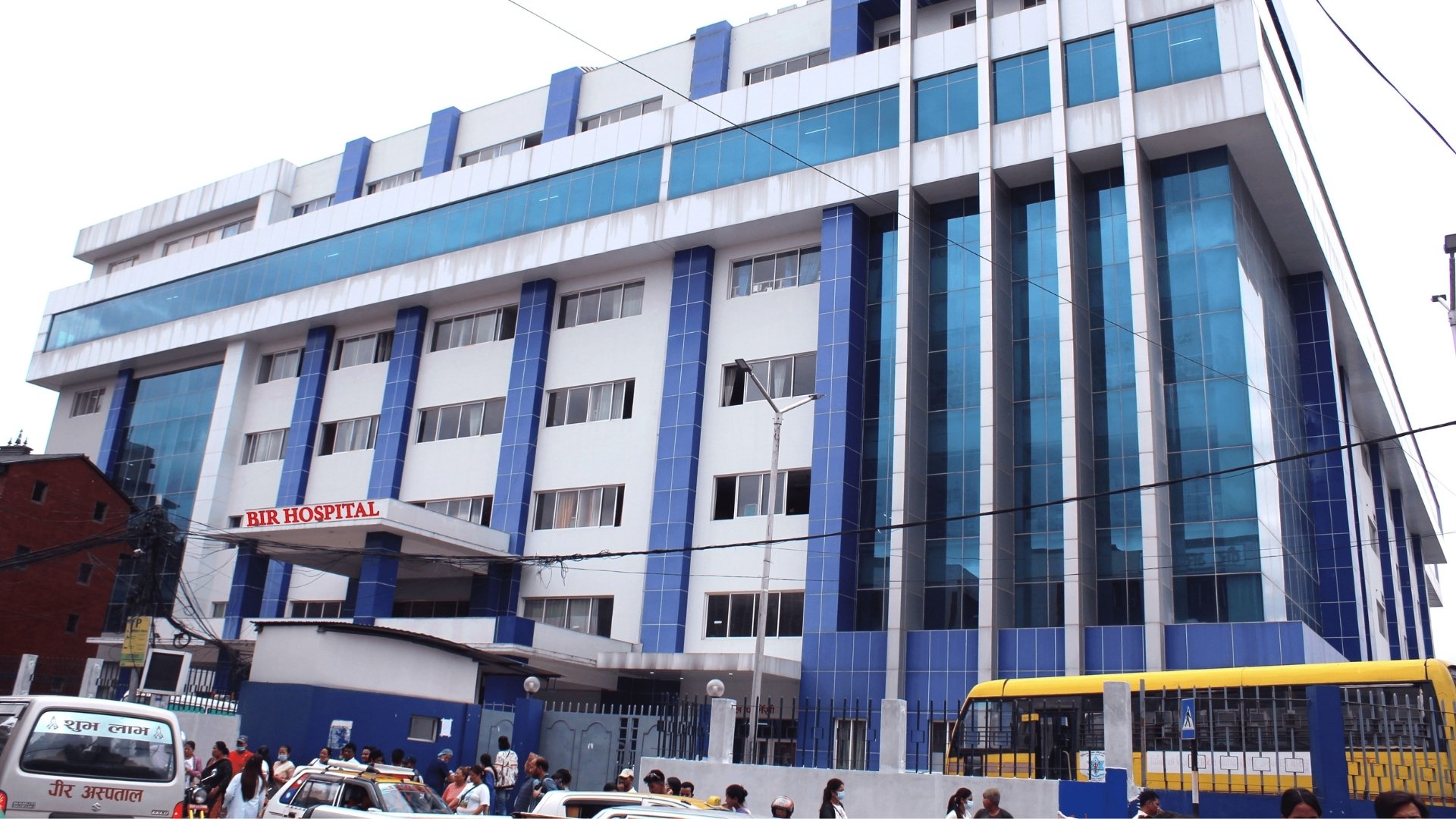NMA | DOCTORS on STRIKE | CONSUMER COURT | MEDICAL NEGLIGENCE | HEALTHCARE ACCOUNTABILITY | NMC

Doctors across Nepal suspended all non-emergency medical services on Monday in protest against recent Consumer Court rulings that imposed significant fines on hospitals and individual physicians for alleged medical negligence.
The strike, called by the Nepal Medical Association (NMA), escalates a symbolic protest that began on July 1, when doctors across the country began wearing black armbands. Although emergency services remain operational, many outpatient departments stay closed.
At Bir Hospital, Nepal’s oldest public hospital, only patients arriving for follow-ups were attended to.
“Services have been shut down at the Association’s call. We are only able to provide partial services. Emergency care continues. We hope a solution will be reached soon,” said Dr Dilip Sharma, the hospital’s director.
The protest follows a series of high-profile rulings by the Kathmandu-based Consumer Court in June, involving renowned hospitals of Kathmandu—Grande International Hospital in Dhapasi, Himal Hospital in Gyaneshwor, and Om Hospital in Chabahil.
Consumer Court’s role and the three rulings
Formed with a mandate to address grievances relating to defective products and substandard services, including healthcare, the Consumer Court commenced operations only this year, beginning in March. The newly constituted court is currently limited to jurisdiction within the three districts of Kathmandu Valley.
One of the three most reported cases that ignited the ongoing doctors’ protest involves the death of a 28-month-old girl. She was taken to the Himal Hospital in February 2023 with symptoms of fever and cold.
According to the family, the attending paediatrician did not perform a thorough examination. Instead, he prescribed medication, and over the next few days, the child’s condition deteriorated. She died soon after, and her family held both the doctor and the hospital accountable for negligence.
Although the Nepal Medical Council (NMC) investigated the case and issued a formal warning to the doctor, the family considered the action insufficient. They turned to the Consumer Court, seeking a stronger response. Last month, the court ruled that both the doctor and hospital had failed in their duty of care.
The court ordered Himal Hospital to pay Rs 10.18 million and the doctor to pay Rs 4.36 million, concluding that the hospital bore 70% of the responsibility, while the doctor was accountable for 30%.
Similarly, the Consumer Court found Om Hospital in Chabahil and its doctors negligent in the treatment of 98-year-old Harihar Prasad Gautam, who was admitted after a fall but discharged the same day with only painkillers. His condition worsened over the following days, and he later died after being diagnosed elsewhere with a hip fracture that had initially been missed.
In its ruling, the court ordered Rs 5.07 million in compensation, assigning 80% liability to the hospital and the remaining 20% to three attending doctors, each held personally accountable for a portion of the fine.
In another case, the court penalised Grande International Hospital and one of its doctors over negligence during a cosmetic procedure, leading to serious complications for the patient. While details of the incident remain limited, the court found lapses in clinical care and procedural judgment.
In its verdict, the court ordered the hospital and the doctor to pay a combined compensation of Rs 5.71 million, assigning 60% of the liability to the hospital and 40% to the doctor.
The court is yet to release the full details of the verdict on all three cases.
Though hailed as a milestone for consumer rights, the court has quickly drawn criticism from medical professionals. The NMA contends that legal remedies should involve the NMC before proceeding to civil damages in court.
What medical professional says
Doctors argue that the verdicts reduce complex medical judgment to consumer dissatisfaction and are being handed down without input from the NMC, the statutory body responsible for regulating the medical profession.
In an interview with Kantipur, Dr Anil Bikram Karki, President of the Nepal Medical Association, said there is no trust left between doctors and patients and they have reached a point where they can hardly provide services. He warned that the current situation runs the risk of middlemen exploiting the system, claiming compensation from doctors and hospitals on behalf of patients for financial gain.
Dr Sanjeeb Tiwari, NMA General Secretary, described the medical profession as an extremely sensitive, scientific, and ethical service, and stated that it is unacceptable to evaluate and decide on it as if it were any other business.
“This is not a matter for consumer court but for regulators with the right expertise,” added Dr Tiwari. “The Consumer Court’s legal intervention, bypassing institutions like the Nepal Medical Council, has created a great deal of uncertainty in medical practice.”
The NMA has called for:
Besides, the NMA has urged the Consumer Court to review its decision and called on the federal health ministry and other concerned agencies to pay immediate attention. It has further warned of intensified protests if these demands are not met promptly.
Meanwhile, consumer rights groups have defended the court’s rulings as necessary for ensuring patient accountability in a system that historically shields doctors from scrutiny.
Jyoti Baniya, chairperson of the Forum for the Protection of Consumer Rights–Nepal, reportedly criticised the NMA’s protest, saying that halting hospital services and depriving patients of treatment had increasingly become a method used by the Association to pressure the government into meeting its demands.
Many are also pointing out that refusing treatment as a form of protest against the court verdict is unjustifiable.
(With inputs from Rastriya Samachar Samiti)
Read More Stories
Kathmandu’s decay: From glorious past to ominous future
Kathmandu: The legend and the legacy Legend about Kathmandus evolution holds that the...
Kathmandu - A crumbling valley!
Valleys and cities should be young, vibrant, inspiring and full of hopes with...
Nepal to receive $36.1 million to mitigate GLOF risks
Nepal is set to receive $36.1 million in mitigating one of the escalated...